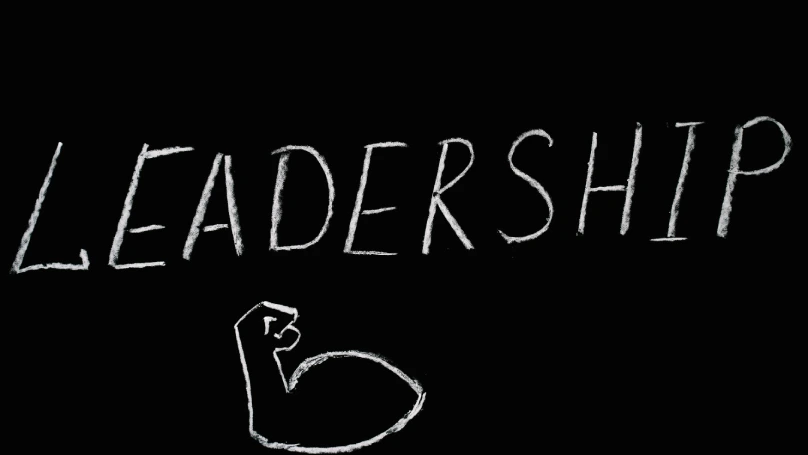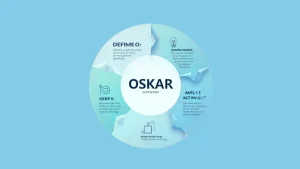At first glance, the concept of leadership appears straightforward, but it quickly becomes clear that its true nature is anything but. Leadership can come in the form of political figures, business moguls, coaches, and community activists, just to name a few. So, what does it mean to be a leader? Is it about inspiring a team? Or about setting the direction and making decisions?
This paper defines leadership using seven different definitions, with each one illustrating a somewhat different aspect of the concept and why various approaches to it are necessary. This paper will delve deep into the explanations of what exactly constitutes the making of an effective leader who can inspire others towards a common cause, be it for an aspirant leadership role or someone simply in need of understanding leadership for life.
What is Leadership?
Before trying to define what it is, it’s necessary to first understand what leadership means. Leadership is not merely a question of holding some title or position. It involves being responsible for the outcomes of the group or organization, showing the way to be taken toward a common goal, and inspiring others to reach their fullest potential. It is a dynamic concept that may look different depending on the context and the people involved. Whether one is leading a small team or an entire nation, leadership requires much more than authority; it demands the ability to involve and inspire others.
Leadership exists in every corner of life: in our families, our workplaces, our communities, and even in the way we lead our journeys. It’s not confined to high-ranking CEOs or government officials; anyone who can motivate, guide, and inspire can be a leader.

Definition 1: Leadership as Influence
Probably the most widely accepted definition of leadership defines it as a process of influencing others. True leaders do influence people to act, think, and believe in a way that culminates into some form of vision, mission, or values. It is not about forcing people to comply; instead, it is about motivating inspiring, and earning their trust.
The influential leader uses his voice, actions, and example to influence the opinions and activities of others. They build rapport and create meaningful connections, leading by example. A person who uses influence doesn’t have to shout the loudest or have the most power; they inspire through building real relationships.
Examples:
- Martin Luther King Jr. led millions in the Civil Rights Movement, not by commanding them but by inspiring and painting a vivid vision of a just world.
- Steve Jobs didn’t just command the future of technology; he created a generation of influence with products that connected to people’s desires, making them feel part of something revolutionary.
Leadership as influence is subtle but powerful. It’s about the ability to shape thoughts and behaviors without the need for direct control.

Definition 2: Leadership as Vision
Another common definition of leadership is that it’s about vision. Leaders with a clear vision have the ability to see a future that others may not even be able to imagine. They create a compelling picture of where they want to go and why it matters. Visionary leaders provide clarity and purpose, which drives others to follow.
Leaders who possess vision not only inspire action but also give their followers a sense of purpose. This sense of direction can make even the toughest challenges seem doable. They give people something to believe in, something to work toward, and something to strive for.
Examples:
- Elon Musk changed the game with his big vision for the future: from electric cars at Tesla to space exploration at SpaceX.
- Oprah Winfrey built an empire, not just because she had a clear vision for her career but because she empowered others to see the world differently.
The building block of innovation and growth is visionary leadership. Without vision, teams can flail about aimlessly and lose their vision of the big picture.

Definition 3: Leadership as Service
Sometimes, leadership is defined not as something you do for yourself, but something you do for others. In servant leadership, the main role of the leader is to serve and lift others up. What this definition would suggest is that the success of a leader lies in their helping others to be successful.
Servant leadership is about the welfare of the team, making sure their needs and development come first. This is all about selfless ways in which a leader can build trust, loyalty, and teamwork. Servant leaders seek to empower others, eliminate roadblocks, and create environments where people thrive.
Examples:
- Mother Teresa is one example of servant leadership. She vowed her life to the poor, sick, and downtrodden. She led, never by commanding, but through serving others with compassion.
- Nelson Mandela, during his presidency and activism, showed that he would put the needs of his people before his at all times and thus won many people’s respect and admiration.
Servant leadership highlights humility and empathy as its most important characteristics, showing that true leaders rise by lifting others.

Definition 4: Leadership as Decision-Making
The most critical role a leader can play in any setting, whether small or big, is decision-making. Decisions, big or small, are the core part of leaders’ responsibilities. Leadership as decision-making involves making choices reflecting the needs and values of a group or organization while taking into consideration potential risks and rewards.
The burden of decision can sometimes be crushing, but it’s here that strong leaders do their work, using insight and experience to make informed choices. Not dodging difficult decisions is often what has made leadership all about making hard calls.
Examples:
- Winston Churchill, during the dark days of Britain at the onset of World War II, led it to victory, making certain very important decisions that later completely changed the course of the war.
- Jeff Bezos, the founder of Amazon, made some very important decisions early on that set the company on a path to success, including focusing on customer obsession over everything else.
Leadership as decision-making requires courage, foresight, and the ability to weigh options and make choices with integrity.

Definition 5: Leadership as Empowerment
Another powerful definition of leadership is that it’s about empowerment. Rather than leaders simply taking the reins, the empowering leader provides others with the tools, resources, and authority to make decisions and take initiative. They develop and nurture the leadership potential in others, which creates a more resilient and sustainable organization.
Empowered teams are more engaged, productive, and creative. When leaders empower their followers, they build trust and confidence, creating a culture where everyone has a stake in the mission’s success.
Examples:
- Indra Nooyi, former CEO of PepsiCo, was known to empower her team and give them the freedom to lead in their respective areas of responsibility.
- Sheryl Sandberg, the COO of Facebook, is an advocate for women leading in the workplace and has written extensively on the subject.
Leaders who empower others know that their success is linked with the success of those they lead.

Definition 6: Leadership as Adaptability
In today’s fast-moving world, adaptability has turned out to be an imperative aspect of leadership. Great leaders surely know how to pivot toward, adjust to new circumstances, and thrive in the face of uncertainty. The ability to adapt is what sets the most successful leaders apart from the rest.
Whether it is through a sudden shift in the market, an unforeseen challenge, or managing a team through a crisis, an adaptive leader will always change strategy to fit the given situation.
Examples:
- Jeff Weiner, chief executive of LinkedIn, has led the firm through massive growth and change while continuing to adapt its strategies to the ever-evolving needs of its users and marketplace.
Adaptable leaders are flexible and open-minded so that whatever happens, they are ready to handle it.

Definition 7: Leadership as Emotional Intelligence
Finally, leadership as emotional intelligence or EI is a modern and fast-emerging definition. Emotional Intelligence is the capability to recognize and manage one’s emotions and the emotions of others. Leaders who possess high EI can handle intricate social situations with ease, have strong relationships, and handle interpersonal dynamics graciously.
Leaders with emotional intelligence handle conflicts, inspire their teams and create a culture at work that is very positive. They know when to push and when to listen, and how to communicate with the best effect.
Examples:
- Barack Obama is highly praised for his emotional intelligence in connecting with the people and showing empathy during his presidency.
- Satya Nadella, CEO of Microsoft, has transformed the company’s culture through an emphasis on empathy and emotional intelligence.
Emotional intelligence within leadership inspires trust, fosters better team dynamics, and is considerate in decision-making.

Conclusion
Leadership is a multidimensional construct that means various things in a variety of contexts. Influence, vision, service, making decisions, empowering others, adaptability, and emotional intelligence are some ways to describe leadership, each adding something to the varieties of insight about what good leadership can be. Welcoming many ways of interpreting leadership will help us advance much stronger and more relevant leadership in personal and professional practices.
It’s finally about how to use the right balance of all those qualities at the right time. The best leaders are the ones who know how to navigate through the complexity of human behavior and enable others to perform at their best.











